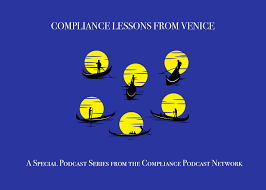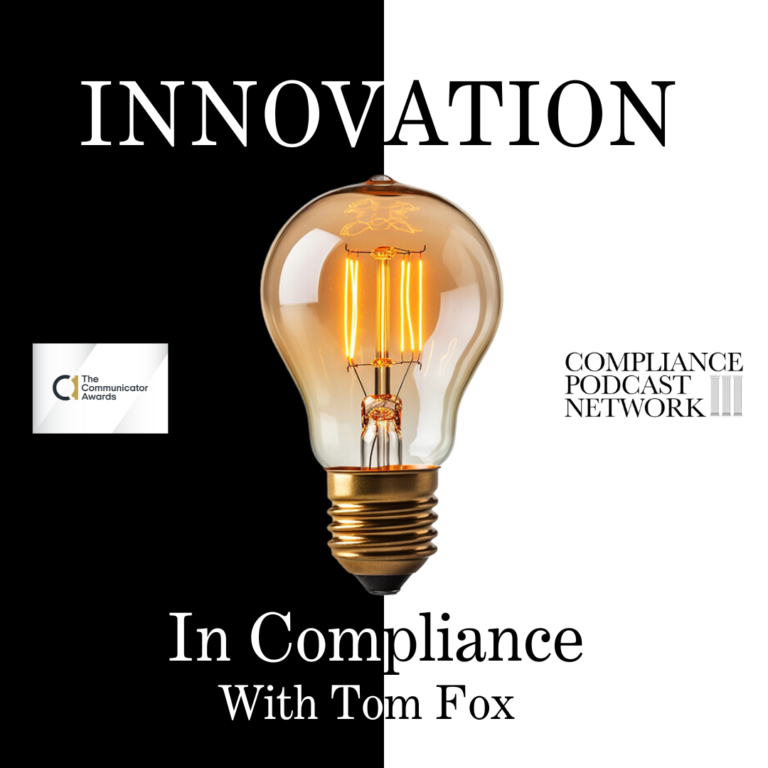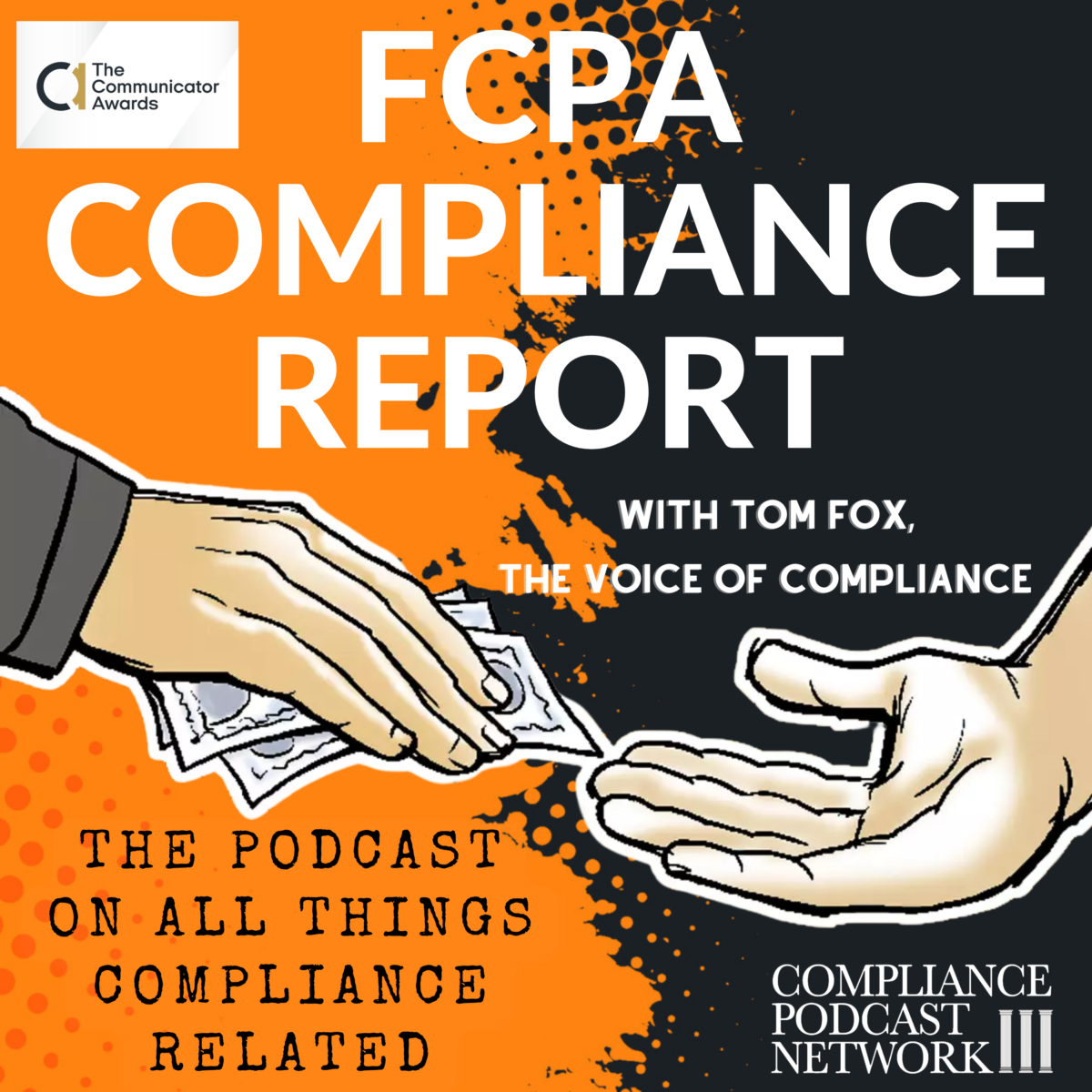In the final part of the Compliance Lessons from Venice series, we focus on one of Venice’s earliest tools for addressing misconduct: a reporting system predating modern whistleblower programs. Known as the Lion’s Mouth, this system encouraged citizens to report wrongdoing by placing written complaints in the mouths of lion-head statues stationed around the city. The symbolism is potent: Venice’s emblematic lion acted as a protector, allowing citizens to expose corruption and misconduct while contributing to the Republic’s stability. Check out the companion podcast series on the Compliance Podcast Network.
Today, a robust whistleblower program is one of the most essential components of a best-practices compliance program. The DOJ and SEC have clarified that effective compliance programs must include reliable, confidential, and trusted internal reporting mechanisms. Venice’s Lion’s Mouth reminds the modern-day compliance professional that encouraging transparency and protecting those who speak up has been crucial for centuries. In this blog post, we will explore some best practices for modern whistleblower hotlines and reporting mechanisms, along with insights from Venice’s historical approach.
Venice’s Lion’s Mouth: An Early Whistleblower System
The Lion’s Mouth of Venice functioned as an anonymous drop box where citizens could submit grievances and report misconduct. Initially designed to offer anonymity, this system later required that the complainant’s name be included, balancing confidentiality with accountability. Citizens could report fraud, bribery, and other forms of misconduct, trusting that their submissions would be considered seriously.
The modern equivalent of this system is the whistleblower hotline, an invaluable tool for compliance departments to detect and address issues early. Companies can foster a culture of openness and accountability by enabling employees and stakeholders to report suspicious or unethical behavior without fear of retaliation. This practice is essential for organizations subject to laws like the Foreign Corrupt Practices Act (FCPA), where transparency can mean the difference between compliance and liability.
Key Elements of an Effective Whistleblower Hotline
Building an effective whistleblower system means going beyond merely setting up a hotline. It is about creating a trusted channel that employees feel safe using, knowing their concerns will be handled with discretion and integrity. Here are seven best practices to establish or enhance your whistleblower program, inspired by the Lion’s Mouth and aligned with the DOJ’s most recent guidance from the 2020 FCPA Resource Guide, 2nd edition, and the recently released 2024 Evaluation of Corporate Compliance Programs(2024 ECCP). The 2024 ECCP states, “Another hallmark of a well-designed compliance program is the existence of an efficient and trusted mechanism by which employees can anonymously or confidentially report allegations of a breach of the company’s code of conduct, company policies, or suspected or actual misconduct.”
- External Management of the Hotline
Many organizations find that outsourcing their hotline to a third party adds a layer of impartiality and anonymity. Employees are often more comfortable reporting through an externally managed system than an internal one. An external provider typically brings specialized expertise in handling confidential reports, ensuring compliance with local laws and regulations. This neutrality encourages employees to come forward with concerns, knowing the system is transparent and managed independently.
- Detailed Information Collection
A hotline should support collecting detailed information from the first report to the resolution stage. By maintaining a consolidated record of each complaint, compliance teams can analyze data trends across departments, locations, and types of issues reported. This visibility helps the organization proactively identify and address potential risk areas, ensuring the compliance team has a complete, chronological view of each complaint to support thorough investigations and better decision-making.
- Compliance with Data Retention Policies
With data privacy regulations such as GDPR, it is essential to ensure that all whistleblower reports adhere to the company’s data retention and privacy policies. Hotlines should offer secure, report-only access to data, ensuring that information is stored correctly and compliant with regulatory requirements. This reduces the risk of sensitive data breaches and ensures compliance teams can retrieve reports for future audits or legal inquiries.
- Inspiring Employee Confidence in the Hotline
A hotline will be ineffective if employees lack confidence in it. Retaliation, or the perception of it, can quickly destroy trust in a whistleblower program. Employees should feel assured that they can report concerns without fear of retaliation and that their complaints will be handled fairly and objectively. The hotline should offer privacy, allowing employees to file reports from locations outside of their immediate workplace or chain of command. These features create an environment where employees feel safe and protected when reporting misconduct.
- Support from Subject Matter Experts
A hotline is only as effective as the follow-up on each report. Once a complaint is entered, it’s crucial to ensure that subject matter experts or designated compliance officers address it promptly. Ignoring or delaying response times can damage trust in the hotline. Additionally, under the Dodd-Frank whistleblower provisions, there’s a short timeframe for internal resolution before an employee can seek benefits under the program, making prompt attention to complaints a legal and ethical priority.
- Litigation Support and Document Retention Tools
A well-configured hotline should offer tools to meet the legal requirements for document retention and protect whistleblower submissions as attorney work product or under attorney-client privilege, if applicable. Implementing these legal protections within the hotline system mitigates potential legal risks and strengthens the organization’s ability to defend its actions should litigation arise. Outsourcing these functionalities to a third-party provider can save costs and ensure compliance with all necessary legal protections.
- Direct and Transparent Communication with Whistleblowers
Employees need to feel their voices are heard at the highest levels of the company. A hotline that allows for direct, private, and anonymous communication with compliance officers gives employees confidence that their concerns are receiving appropriate attention. This visibility signals that the organization values transparency and accountability, even when uncomfortable. Providing employees with status updates on their reports can also reinforce trust in the system.
Additional Tips for Maintaining an Effective Whistleblower Program
Building a whistleblower program that employees trust requires ongoing effort. Here are a few additional considerations for making the program effective and trusted across your organization:
- Publicize the Hotline. Ensure all employees know the hotline’s existence, how to use it, and the protections in place. This can be achieved through regular training, informational posters, and reminders from senior management.
- Encourage Reporting Without Fear of Retaliation. It’s crucial to communicate a zero-tolerance retaliation policy and enforce it when necessary. When employees see that the company protects and respects whistleblowers, they’re more likely to trust the system.
- Analyze and Act on Data Trends. The absence of certain reports may indicate areas where employees feel unsafe or unwilling to report. Use hotline data to understand the company’s culture and identify areas where additional support or training may be needed.
Lessons from Venice’s Lion’s Mouth for Today’s Compliance Programs
The Lion’s Mouth system exemplifies the importance of giving citizens, whether in Venice or within a modern corporation, a way to report misconduct. Venice’s willingness to create a system where concerns could be voiced without fear of reprisal, while imperfect, reflects an early understanding of the importance of accountability and transparency. Today, we see this principle in the FCPA’s guidance and the DOJ’s endorsement of anonymous reporting mechanisms as part of effective compliance programs.
In designing an effective whistleblower program, compliance professionals should remember that it’s not just about setting up a hotline but building trust. An effective system enables employees to raise concerns in a protected, confidential, and responsive environment, contributing to a culture where transparency and integrity are valued and protected.
Honoring Venice’s Legacy in Modern Whistleblower Programs
As we close out our series on compliance lessons from Venice, it is fascinating to reflect on how this unique city-state has influenced governance, law, and compliance even today. The Lion’s Mouth may have been a primitive mechanism by today’s standards, but its spirit lives on in the whistleblower hotlines that empower employees to report wrongdoing and hold their organizations accountable.
By providing a trusted platform for employees to raise concerns, compliance professionals can create a culture where doing the right thing is supported and valued. The message is clear: just as Venice’s Lion symbolized protection and justice, a well-constructed whistleblower system should stand as a testament to an organization’s commitment to ethics, transparency, and accountability.
Thank you for joining me in this special series on compliance lessons from Venice. These insights remind us that the best compliance practices are sometimes rooted in history and that we can learn from past innovations to create a safer, more ethical future.











